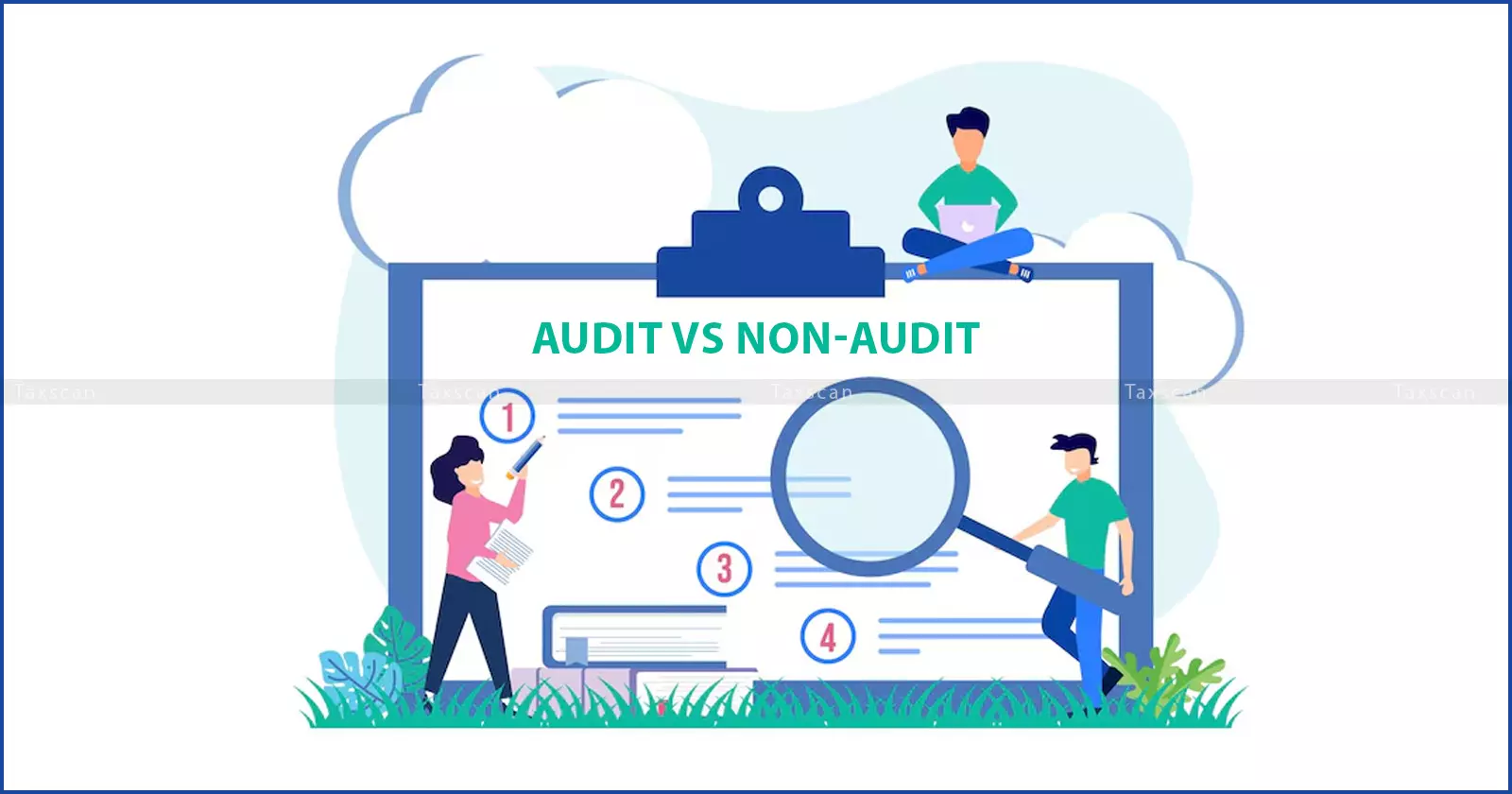Audit vs. Non-Audit Cases: Practical Filing Tips
Understanding audit and non-audit cases helps taxpayers determine whether a tax audit is required based on income thresholds and ensures proper compliance with ITR filing rules

Taxpayers in India are categorized into audit and non-audit cases based on their turnover, income sources, and compliance obligations. This distinction is important for ensuring appropriate adherence to the Income Tax Act, 1961, particularly Section 44AB, which mandates tax audits under certain conditions.
Audit Cases: Definition and Applicability
Audit cases involve mandatory tax audits as per Section 44AB, triggered by specific financial thresholds to ensure accurate tax reporting. These audits are typically required for:
- Businesses with turnover exceeding Rs. 1 crore, or Rs. 10 crore if cash transactions do not exceed 5% of total transactions (effective FY 2020–21).
- Professionals (e.g., doctors, lawyers, consultants) with gross receipts above Rs. 50 lakh.
- Presumptive taxation cases (under Sections 44AD, 44ADA, 44AE, etc.) where:
- Claimed profits are lower than the presumptive rate.
- Income exceeds the basic exemption limit of Rs. 2.5 lakh.
- Businesses incurring losses with turnover above Rs. 1 crore, unless covered under presumptive taxation.
 Also Read:Relief for Coursera: ITAT Rules Receipts Not Taxable as Royalty or FTS Under India-USA DTAA [Read Order]
Also Read:Relief for Coursera: ITAT Rules Receipts Not Taxable as Royalty or FTS Under India-USA DTAA [Read Order]
Statutory Audit Overlap:
If a business is already audited under another law (e.g., Companies Act, 2013), a separate tax audit is not required, provided it is completed before the ITR filing due date. This avoids duplication and eases compliance.
Get Tax-Season Ready with Confidence! Master ITR Filing – ITR-1 to ITR-7 - Click Here
Non-Audit Cases: Scope and Filing Requirements
Non-audit cases refer to taxpayers whose turnover or receipts fall below the above thresholds. While they are exempt from tax audits, filing of the Income Tax Return (ITR) is still mandatory if:
- Total income exceeds the basic exemption limit (Rs. 2.5 lakh for individuals below 60).
- The taxpayer seeks a refund, intends to carry forward losses, or is otherwise required by law to file.
This category mainly includes small businesses, freelancers, and salaried individuals not subject to audit but still under the purview of regular tax filing.
Practical Filing Tips for Audit Cases
For taxpayers subject to a tax audit, compliance requires careful planning, documentation, and timely action. The following steps outline how to navigate audit obligations efficiently and avoid penalties.
1. Determine Audit Applicability
Begin by evaluating whether your business or professional income exceeds the thresholds that mandate a tax audit:
- Businesses: A Tax audit is required if turnover exceeds Rs. 1 crore, or Rs. 10 crore where cash transactions are ≤5% of total receipts/payments (effective FY 2020–21).
- Professionals: If gross receipts exceed Rs. 50 lakh.
- Presumptive Taxation: Audit becomes mandatory if:
- Claimed profits are lower than the prescribed presumptive rates, or
- Income exceeds Rs. 2.5 lakh.
- Loss Cases: Businesses with losses and turnover over Rs. 1 crore (without opting for presumptive scheme) also require a tax audit.
Get Tax-Season Ready with Confidence! Master ITR Filing – ITR-1 to ITR-7 - Click Here
2. Appoint a Chartered Accountant (CA)
Engage a qualified Chartered Accountant with a valid Certificate of Practice (COP). The CA is responsible for:
- Reviewing your books of account.
- Preparing the audit report in prescribed formats.
- Filing the report with the Income Tax Department through their e-filing portal login.
3. Organize and Maintain Documentation
Accurate and complete records are essential. Prepare the following:
- Cash books, ledgers, and journals.
- Sales and purchase invoices.
- Bank statements and reconciliation.
- Stock and inventory records.
- Tax payment challans and TDS certificates.
Discrepancies or missing documentation can lead to audit observations, disallowances, or penalties.
4. Get the Audit Conducted
The CA will conduct the audit and submit the report using the appropriate form:
- Form 3CA: Where accounts are audited under another law (e.g., Companies Act).
- Form 3CB: If no other law mandates an audit.
- Form 3CE: For non-residents or foreign entities earning income from technical services, royalties, etc.
Form 3CD must be filed, detailing tax-relevant financial information.
5. Submit the Audit Report
The audit report must be uploaded through the CA’s login on the income tax e-filing portal. The taxpayer must then:
- Accept or reject the report through their own portal login.
- Ensure the report is filed before the due date to avoid penalties.
6. File the Income Tax Return (ITR)
After accepting the audit report:
- File the applicable ITR form (e.g., ITR-3 for business/profession, ITR-4 for presumptive income).
- Ensure all deductions and exemptions are accurately claimed.
7. Adhere to Deadlines
- Tax Audit Report: Due by September 30, 2025, extendable to October 31, 2025 if transfer pricing provisions apply.
- ITR Filing:
- July 31, 2025 – Salaried individuals not subject to audit.
- October 31, 2025 – For audit cases (businesses and professionals).
 Also Read:Trust Registration Denied Over Object Clause Allowing Overseas Fund Use: ITAT Orders Reconsideration After Proposed Amendment [Read Order]
Also Read:Trust Registration Denied Over Object Clause Allowing Overseas Fund Use: ITAT Orders Reconsideration After Proposed Amendment [Read Order]
8. Avoid Penalties
Failure to submit the audit report on time may lead to a penalty under Section 271B:
- 0.5% of turnover or gross receipts, up to a maximum of Rs. 1.5 lakh.
Valid reasons for delay may include natural disasters, auditor resignation, or loss of records, but timely compliance is strongly advised.
Get Tax-Season Ready with Confidence! Master ITR Filing – ITR-1 to ITR-7 - Click Here
Practical Filing Tips for Non-Audit Cases
For taxpayers not subject to a tax audit, compliance focuses primarily on accurate and timely ITR filing.
1. Confirm Filing Requirement
Filing is mandatory if:
- Total income exceeds Rs. 2.5 lakh for individuals below 60.
- Filing is necessary to claim a TDS refund, carry forward losses, or fulfill other legal obligations.
2. Gather Relevant Documents
Collect all income and deduction-related documentation:
- Form 16 (for salaried income).
- Form 16A (non-salary income like interest).
- Investment proofs for deductions under Sections like 80C, 80D, etc.
- Bank statements and capital gain statements, if applicable.
3. File the Correct ITR
Choose the appropriate form based on income sources:
- ITR-1 (Sahaj): Salaried individuals with income from one house property.
- ITR-4 (Sugam): Presumptive income under Section 44AD/44ADA.
- ITR-2/3: For more complex incomes or business/professional income.
4. Meet the Filing Deadline
- July 31, 2025 – For most non-audit taxpayers.
- October 31, 2025 – If falling under audit or extended timelines.
5. No Audit Report Required
Since the turnover is below audit thresholds, there is no need to file audit-related forms (3CA, 3CB, or 3CE), simplifying the filing process.
Additional Best Practices for All Taxpayers
Stay Updated with Tax Changes: Tax thresholds and rules change frequently. For example, from FY 2020–21, the audit limit was increased to Rs. 10 crore under certain digital transaction conditions. Regularly consult tax professionals or official updates.
Use Reputable E-Filing Platforms: Leverage reliable e-filing platforms or the official Income Tax India portal to ensure secure and accurate filing. Features include auto-filling data from Form 26AS, integrated validation checks, and acknowledgment receipts.
Maintain Financial Records: Consistent recordkeeping helps during tax assessments or audits. Maintain:
- Invoices and receipts.
- Payment vouchers.
- TDS certificates.
- Investment proofs.
For audit cases, double-entry bookkeeping and accrual-based accounting enhance accuracy and audit readiness.
Consult a Tax Professional
- Audit cases: Appointing a CA is mandatory.
- Non-audit cases: Consider consulting a tax expert to maximize deductions and ensure compliance, especially for individuals with multiple income streams.
Be Aware of Penalties
- Audit cases: Late filing penalties under Section 271B (up to Rs. 1.5 lakh).
- Non-audit cases: Late ITR filing under Section 234F, with penalties up to Rs. 5,000 if filed after the due date but before December 31.
Support our journalism by subscribing to Taxscan premium. Follow us on Telegram for quick updates


